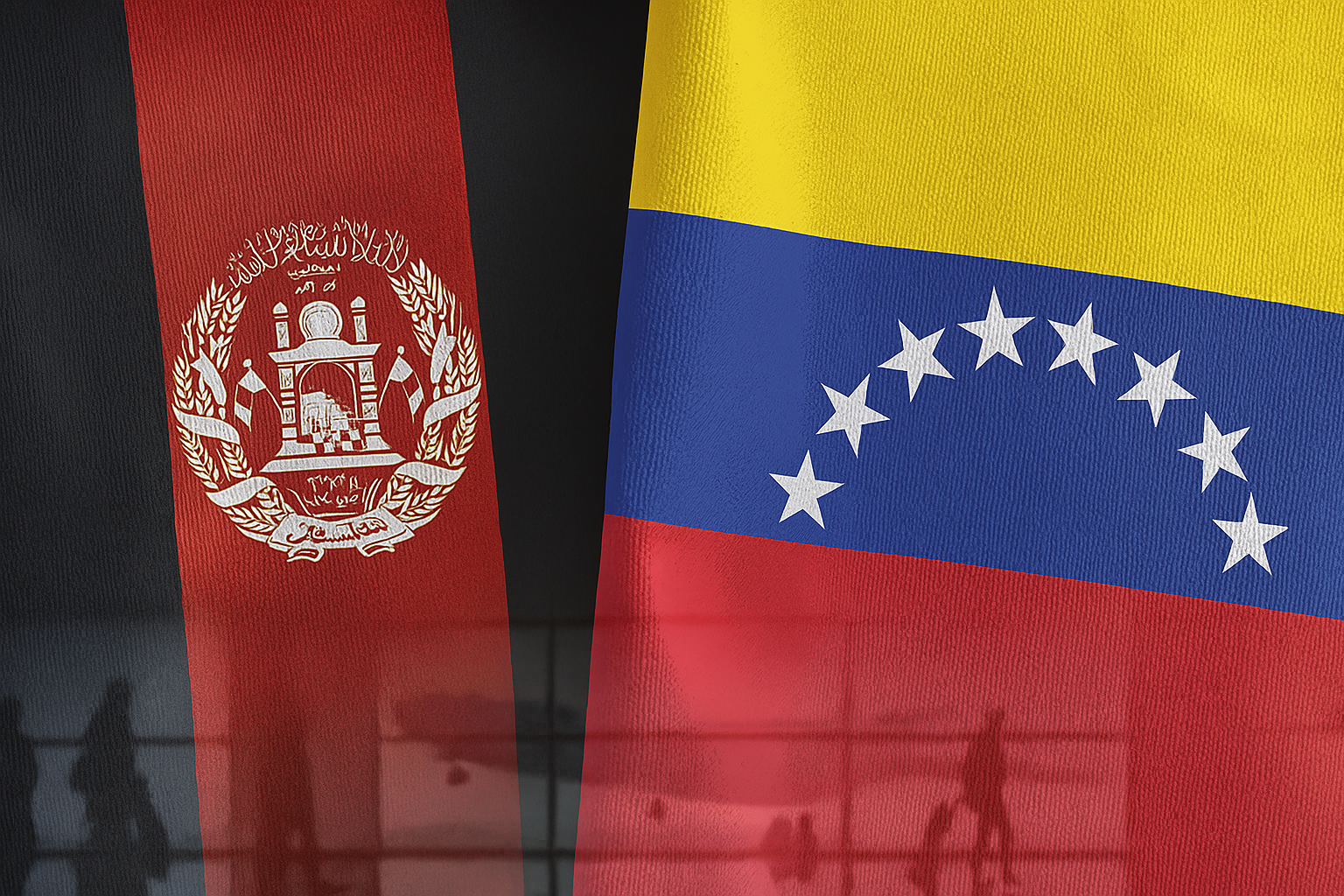Afghanistan and Venezuela Condemn Trump’s Reinstated U.S. Travel Ban


Afghanistan and Venezuela condemn Trump’s new U.S. travel ban, calling it discriminatory and politically motivated amid global backlash.
In the wake of President Donald Trump’s latest executive proclamation, sharp international reactions have emerged, particularly from Afghanistan and Venezuela—two of the nations directly affected by the sweeping U.S. travel ban announced this week.
The policy, set to take effect on June 9, bars entry for citizens from 12 countries and imposes partial restrictions on seven others. Officials in Kabul and Caracas were quick to label the move as politically charged, discriminatory, and damaging to already strained diplomatic relations with Washington.
Afghanistan’s interim government issued a formal statement criticizing the ban, arguing that it unfairly punishes Afghan civilians, many of whom rely on U.S. visas for education, medical treatment, and family reunification. “This is a direct insult to the Afghan people,” said one government spokesperson. “We are fighting terrorism alongside international partners, and this policy punishes the very allies America claims to support.”
Venezuelan authorities echoed similar sentiments, stating that the United States is using immigration policy as a political weapon. Caracas officials condemned the decision as a “hostile gesture” that further alienates Venezuela from global dialogue. “This move has nothing to do with security and everything to do with agenda-driven isolation,” said a foreign affairs representative.
Meanwhile, human rights advocates around the world are raising alarms over the humanitarian impact of the restrictions. They warn the ban could separate families, derail students’ academic futures, and endanger lives by cutting off safe passage for those fleeing conflict.
While the White House insists the ban is a measure to bolster national security and protect American citizens, international backlash is growing. Critics argue that sweeping restrictions based on nationality risk deepening mistrust and diminishing America’s standing on the global stage.
Recent Posts
Apple’s Big Plans for Early 2026: What to Expect
Get ready, tech enthusiasts! Apple is reportedly gearing up for a significant wave of product… Read More
Understanding Trump’s Latest Move Against Canada and Beyond
A Bold Stance on Trade Relations The global trade landscape is once again shifting as… Read More
Stop Believing These Common Weight Loss Myths
Tired of weight loss advice that just doesn't work? Debunking the most common myths about… Read More
Sweat Smarter, Not Harder: Your Beginner’s Guide to Home Workouts
Ready to get fit without leaving your house? This beginner-friendly guide covers everything you need… Read More
Did False Data Cost Columbia $9 Million? What the Lawsuit Means for Students
Columbia University settles a $9 million lawsuit over alleged false data in college rankings. Discover… Read More
US Stock Market Why Futures Dipped After Record Highs
US stock futures dip after record highs. Explore what's driving this pullback, from federal policy… Read More